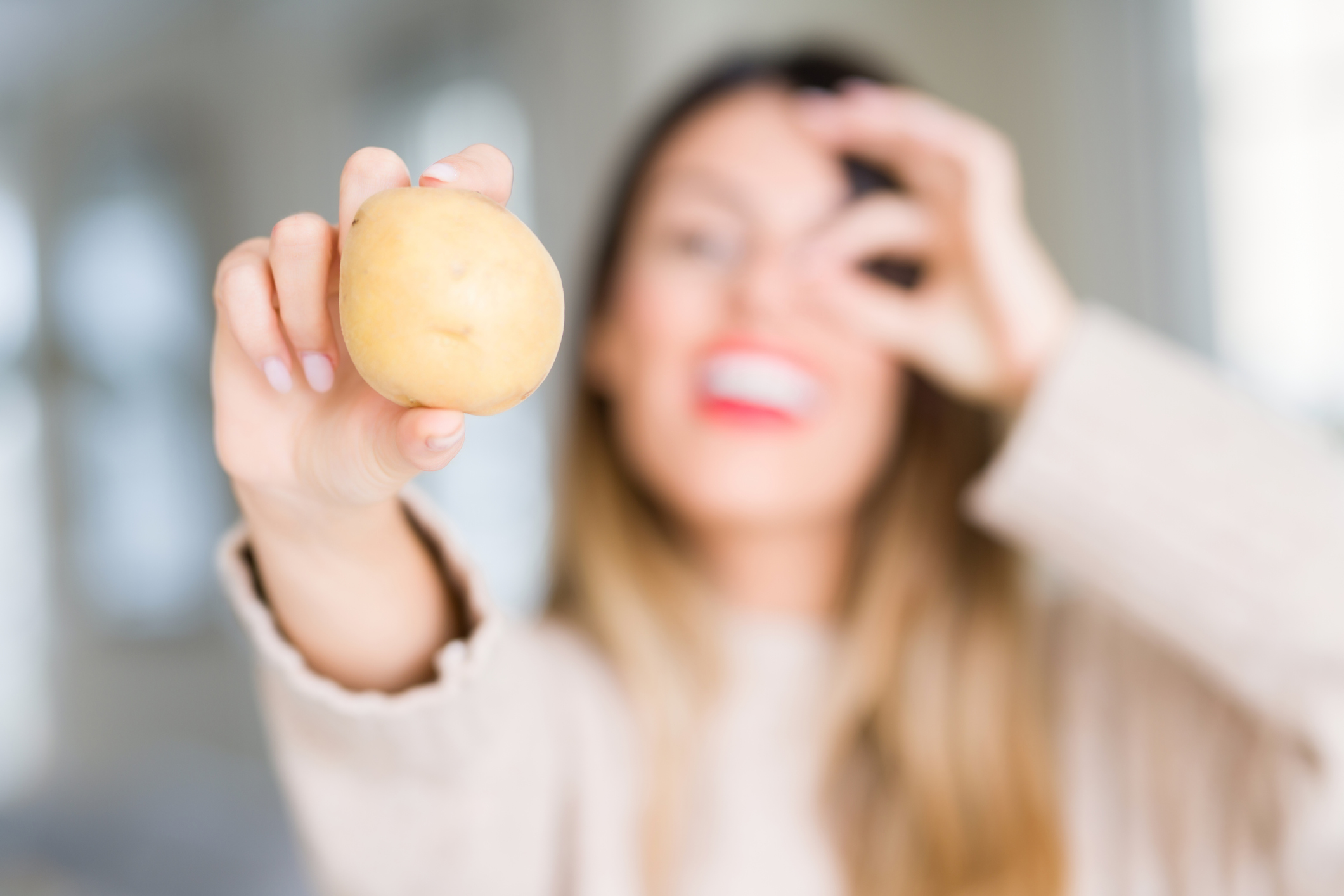Get Easy Health Digest™ in your inbox and don’t miss a thing when you subscribe today. Plus, get the free bonus report, Mother Nature’s Tips, Tricks and Remedies for Cholesterol, Blood Pressure & Blood Sugar as my way of saying welcome to the community!
Why you can ignore what the glycemic index says about potatoes

If you have type 2 diabetes, you’re familiar with the Glycemic Index (GI). You probably consult it every time you plan a meal or a snack.
For the rest of you, here’s a quick recap…
The Glycemic Index is a measurement system that ranks foods according to how much they increase your blood sugar level.
Pure glucose has a GI of 100, so the closer a food is ranked to 100, the more it spikes your blood sugar. Refined carbs and sugars have high GI scores, while foods high in protein, fat or fiber tend to have lower scores.
Potatoes have a higher glycemic index score than table sugar! That’s because potatoes are mostly starch that is broken down into glucose very quickly.
So, if you’re trying to control blood sugar, you should stay away from potatoes, right?
Not according to a new study.
Why potatoes are OK
The GI score of a particular food is a snapshot of a food eaten in isolation. GI scores were obtained under laboratory conditions.
In real life, most foods are not eaten alone. Your evening meal, for example, usually consists of carbs, protein and fats.
A recent study demonstrated why the glycemic index of a food like potatoes is not always an accurate measure of how it will affect a person’s blood sugar.
Dr. Brooke Devlin of Australian Catholic University led the study.
“It’s rare that people eat foods in isolation,” said Dr. Devlin, “and findings from this study demonstrate how other factors, such as the time of day or food pairings, need to be considered when investigating the GR of mixed meals in individuals with T2D.”
Participants in the study were randomly assigned to one of four dinners, each including skinless white potatoes (boiled, roasted, or boiled then cooled and reheated), or basmati rice.
All participants cycled through all the potato meals and the rice meal, with a nine-day break between trials. All wore a glucose monitor overnight and had regular blood samples drawn.
The findings? Overnight blood sugar levels were lower after eating a meal with potatoes than after eating a meal with rice, even though rice has a lower glycemic index.
How to lower the GI of potatoes
An individual’s glycemic response to a serving of potatoes (how much their blood sugar spikes) can vary, but the variables are under your control.
First, there’s portion size. If you’re serving yourself a plate for dinner, fill most of it with meat and vegetables, and leave a small amount of room for potatoes. This will help you make sure you limit your intake.
You also have a choice about your cooking method. Cooking changes the structure of the starch in potatoes, and thus how fast they’re absorbed into your bloodstream.
In general, the longer a potato is cooked, the higher the GI. Therefore, boiling or baking for long periods tends to increase the GI.
Cooling potatoes after cooking increases the amount of resistant starch, which is a less digestible form of carbs. This helps lower the GI by 25–28 percent
This means that a side of potato salad may be slightly better than french fries or hot baked potatoes if you have diabetes.
Finally, if you eat the skin on your cooked potato, you’re adding fiber, which helps slow the digestion of carbs.
Editor’s note: Are you feeling unusually tired? You may think this is normal aging, but the problem could be your master hormone. When it’s not working, your risk of age-related diseases skyrockets. To reset what many call “the trigger for all disease” and live better, longer, click here to discover The Insulin Factor: How to Repair Your Body’s Master Controller and Conquer Chronic Disease!
Sources:
People with type 2 diabetes need not avoid eating potatoes based on glycemic index — Eureka Alert
Lower nocturnal blood glucose response to a potato-based mixed evening meal compared to rice in individuals with type 2 diabetes — Clinical Nutrition
Can You Eat Potatoes If You Have Diabetes? — Healthline













